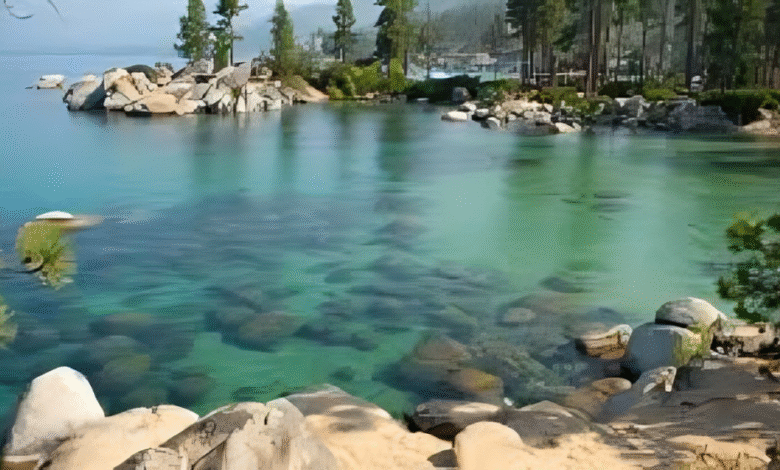Lake Texoma Should Be Capitalized Grammar Geography and Proper Usage

When writing about geographical landmarks, proper capitalization is crucial for accuracy, clarity, and professionalism. Among the many geographical names that often prompt questions about capitalization is Lake Texoma. Writers, editors, and students sometimes wonder if “Lake Texoma” needs to be capitalized. The short answer? Yes, and in this article, we will explore why Lake Texoma should be capitalized according to English grammar rules, geography naming conventions, and style guide recommendations.
This guide will provide an in-depth explanation of capitalization rules for place names, the history and significance of Lake Texoma, and common writing mistakes to avoid. Whether you are writing an academic paper, a blog post, or even a travel article, understanding why Lake Texoma should be capitalized will help you maintain proper style and accuracy.
Understanding Capitalization Rules for Place Names
Proper Nouns vs. Common Nouns
Lake Texoma Should Be Capitalized, proper nouns refer to the specific names of people, places, and things, and they are always capitalized. On the other hand, common nouns are general terms and are not capitalized unless they appear at the beginning of a sentence.
For example:
- Proper noun: Lake Texoma, Mount Everest, Pacific Ocean
- Common noun: lake, mountain, ocean
Since “Lake Texoma” refers to a specific geographic landmark, it falls under the category of proper nouns, which means both “Lake” and “Texoma” should start with capital letters.
Titles That Include Generic Terms
A common question arises: why is “Lake” capitalized in “Lake Texoma,” but not in “the lake”? The reason is simple: when “lake” is part of the official name, it’s capitalized; when it’s used generically, it’s not.
Correct usage:
- “We spent the weekend at Lake Texoma.”
- “We visited the lake last summer.”
Lake Texoma: Location, History, and Importance
Geographic Overview
Lake Texoma is a large reservoir located on the border between Texas and Oklahoma. Created by the Denison Dam on the Red River in 1944, it is one of the largest reservoirs in the United States. The name itself comes from a combination of “Tex” (Texas) and “Oma” (Oklahoma), reflecting its shared location between the two states.
Economic and Recreational Significance
Lake Texoma is a major hub for fishing, boating, camping, and tourism. Its waters are famous for striped bass fishing, attracting thousands of anglers each year. The lake also boosts local economies through tourism and water-related industries.
Cultural and Regional Importance
Beyond recreation, Lake Texoma is an important part of local culture. Many residents of Texas and Oklahoma have fond memories of summers spent by its shores. This cultural significance reinforces the need to write about it accurately — including correct capitalization.
Why Lake Texoma Should Be Capitalized
Rule 1: Proper Noun Convention
The primary reason Lake Texoma should be capitalized is that it’s a proper noun. In English, proper nouns always begin with capital letters. Both “Lake” and “Texoma” are integral parts of the official name, so they should always be written with initial capitals.
Rule 2: Consistency in Writing
Consistency is key in professional and academic writing. If you mention Lake Texoma once with correct capitalization, but later write “lake texoma” in lowercase, it can make your work look careless or unpolished.
Rule 3: Style Guide Recommendations
Major style guides — such as APA, MLA, Chicago, and AP Style — all agree that geographic names should be capitalized. Following these conventions ensures your writing meets professional standards.
Common Mistakes When Writing ‘Lake Texoma’
Mistake 1: Lowercasing Both Words
Writing “lake texoma” without capitalization is incorrect and may suggest a lack of knowledge about grammar rules.
Mistake 2: Capitalizing Only ‘Texoma’
Some writers mistakenly lowercase “lake” and write “lake Texoma.” While this happens often in informal contexts, it is grammatically incorrect because “Lake” is part of the official name.
Mistake 3: Overcapitalizing Generic Terms
Writers sometimes capitalize “Lake” in phrases like “We went to the Lake” when they’re not referring to the official name. Unless “Lake” is part of a proper noun, it should be lowercase.
Capitalization in Different Writing Contexts
Academic Writing
In research papers or geography essays, Lake Texoma should be capitalized according to formal writing rules. Correct capitalization shows attention to detail and adherence to academic standards.
Travel and Tourism Content
Travel bloggers and tourism websites must also capitalize the name correctly. Miswriting a destination’s name can reduce credibility and affect search engine optimization (SEO).
Casual Writing
Even in social media posts or casual emails, capitalizing “Lake Texoma” correctly maintains clarity and respect for the place’s official designation.
The SEO Perspective: Why Correct Capitalization Matters
Search Engine Recognition
When optimizing for SEO, proper capitalization ensures that your content matches common search queries. Users searching for “LLake Texoma Should Be Capitalized” are more likely to find articles that correctly match the keyword format.
Brand and Location Integrity
Mis-capitalizing a location name can make your website appear less professional, potentially reducing trust with your audience.
Historical References to Lake Texoma
Lake Texoma has been referenced in news articles, travel guides, and historical accounts for decades. In every official record — from government documents to tourism brochures — the name appears capitalized. This reinforces the fact that Lake Texoma should be capitalized in all formal writing.
Examples of Correct and Incorrect Usage
Correct:
- “Lake Texoma offers world-class fishing opportunities.”
- “Our family vacationed at Lake Texoma last summer.”
Incorrect:
- “lake texoma is a great place to visit.”
- “lake Texoma is located on the Texas-Oklahoma border.”
Lake Texoma in Literature and Media
Books, magazines, and travel shows have all highlighted Lake Texoma’s beauty and attractions. Whether in a fishing guide or a nature photography book, professional publications consistently capitalize the name.
Grammar Tip: How to Remember
A simple way to remember: If you can point to it on a map and it’s an official place name, capitalize all main words in the name. This means both “Lake Texoma Should Be Capitalized” get capital letters.
Impact of Incorrect Capitalization
Using lowercase for “Lake Texoma” can cause:
- Loss of professionalism in writing.
- Confusion for readers unfamiliar with the place.
- Lower SEO performance for digital content.
Frequently Asked Questions (FAQs)
Should “Lake Texoma” always be capitalized?
Yes. Both “Lake” and “Texoma” are part of a proper noun, so they should always be capitalized in writing.
What if I’m just saying “the lake”?
If “lake” is used generically without the full name, it should be lowercase, unless it starts a sentence.
Is this rule the same for all lakes?
Yes. The rule applies to all officially named lakes, such as Lake Michigan, Lake Tahoe, and Lake Victoria.
Does incorrect capitalization affect SEO?
Yes. Search engines favor correct keyword usage, and proper capitalization can help match user search intent.
What style guides cover this rule?
APA, MLA, Chicago Manual of Style, and AP Style all require capitalization of official geographic names.
Conclusion
The answer to whether Lake Texoma should be capitalized is a definitive yes. As a proper noun, it requires capitalization in every instance. Whether you are an academic writer, a travel blogger, or a casual storyteller, getting the name right shows professionalism, respect, and attention to detail.
From grammar rules to SEO best practices, there’s no reason to write “lake texoma” in lowercase. By capitalizing it correctly, you preserve the accuracy, credibility, and integrity of your writing.




